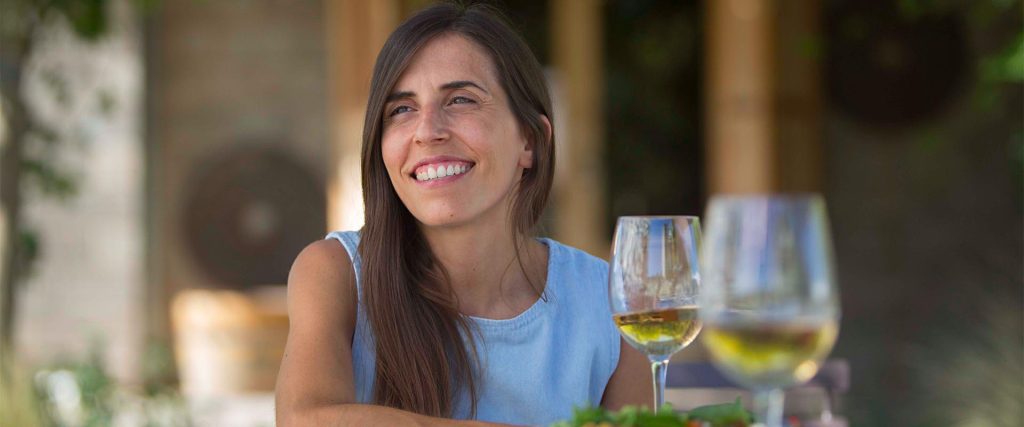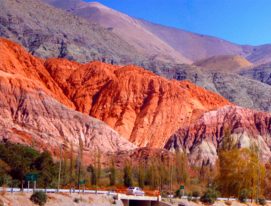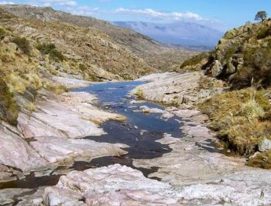Julia Zuccardi is the Head of Tourism and Hospitality at Bodega Santa Julia (her many duties include overseeing the Visitors’ House and the Pan y Oliva restaurant and store) and Zuccardi Valle de Uco (which includes the Piedra Infinita Cocina restaurant). It’s a huge job: the two wineries receive over 60,000 visitors a year.
When she began in 2008, she says she was “completely inexperienced”. At the time, only the Visitors’ House was up and running, becoming a pioneering initiative in Argentine oenotourism. Later it was joined by Pan y Oliva, a restaurant and store serving homemade-inspired cuisine. In 2016, they were joined by Piedra Infinita Cocina in the Uco Valley.
Meanwhile, the family business was growing apace, and its success continues to this day: in 2022, Bodega Zuccardi Valle de Uco opened the Hall of Fame of the World’s Best Vineyards, a list of the best wineries to visit in the world, after they won first place in the competition’s first three editions.
Zuccardi aren’t just leading the way in terms of global recognition for Argentine wine, they’ve also become an iconic hub of oenotourism and winery cuisine, and these fall under Julia Zuccardi’s watch.
We spoke to Julia Zuccardi at length about the future challenges for wine tourism and hospitality in Argentina.
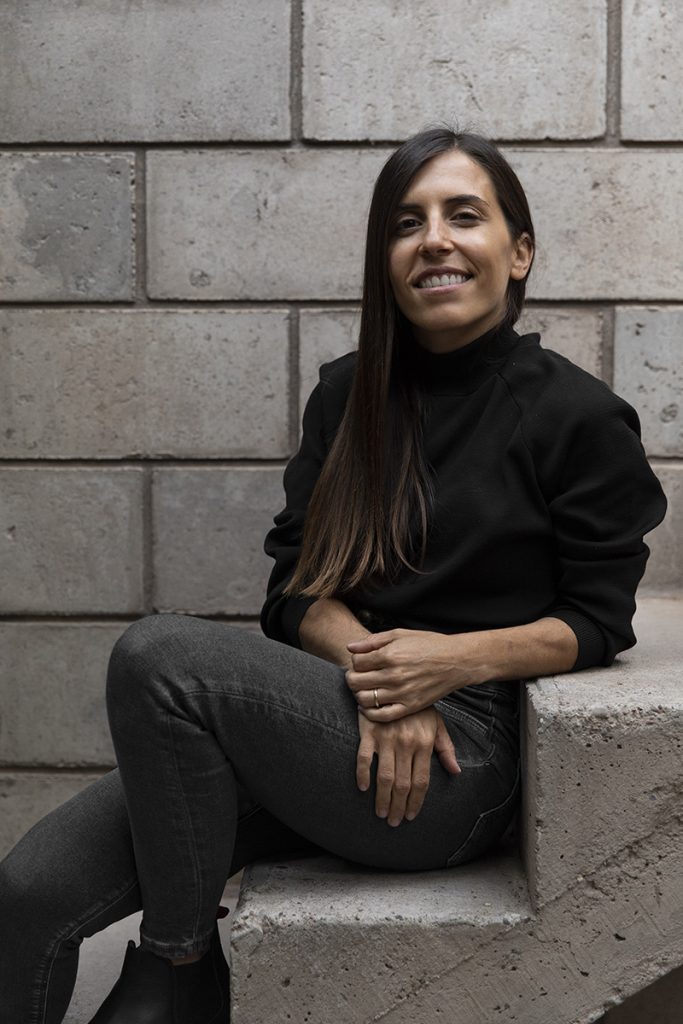
Interview with Julia Zuccardi
How has your work developed in recent years? What are your objectives today after all the honors and awards Bodega Zuccardi has won thus far?
We’ve come a long way. At first, I was completely inexperienced in tourism and hospitality but the world of wine was always a part of my life. I gradually evolved and the process continues to this day. First with my mother (Ana Amitrano), who ran the tourism department back then, and then with experiences outside the winery to complete my training.
The objectives are the same as ever: for the experiences at both wineries to continue improving in terms of quality and uniqueness. It’s very important to us that people go away with a little of the essence of our family and for our concept to be commensurate with the work my brothers are doing: Sebastián with the wines, and Miguel with the olive oils.
We are well aware that we are representing and promoting the family’s project, so it’s extremely important to us that we communicate values like quality, innovation and sustainability. These three pillars are key to all our activities: we want people to feel a real experience, to be part of what is happening and to learn how it works as well.
What have you learned along the way?
I was fortunate to be part of several excellent teams from whom I was able to learn. Maybe the most important thing I learned was how to work with people and lead teams in a way that was true to myself. Reading visitors, sensing what they want and how they want it, was also very important. That has changed a lot in the last ten years. I realized that what they’re really looking for is authenticity and to achieve that you need to establish a personal connection, to share a story and philosophy, something tangible.
What have been the landmark moments so far?
When I started, the Visitors’ House and Visitor Center at Santa Julia were running and each had its own identity. I think the first personal landmark was the opening of Pan y Oliva, which I was involved in right from the start.
I always identified strongly with the project because it’s related to the things I love: a place and its cuisine. Then came the opening of Piedra Infinita Cocina, which was a major event in 2016 and motivated me to take a big leap forward in my career. It was a challenge; when we opened, we thought it would take us about ten years to position the restaurant; but thanks to Mendoza’s growth as a tourist destination, it immediately took off and is now a leading international oenotourism attraction.
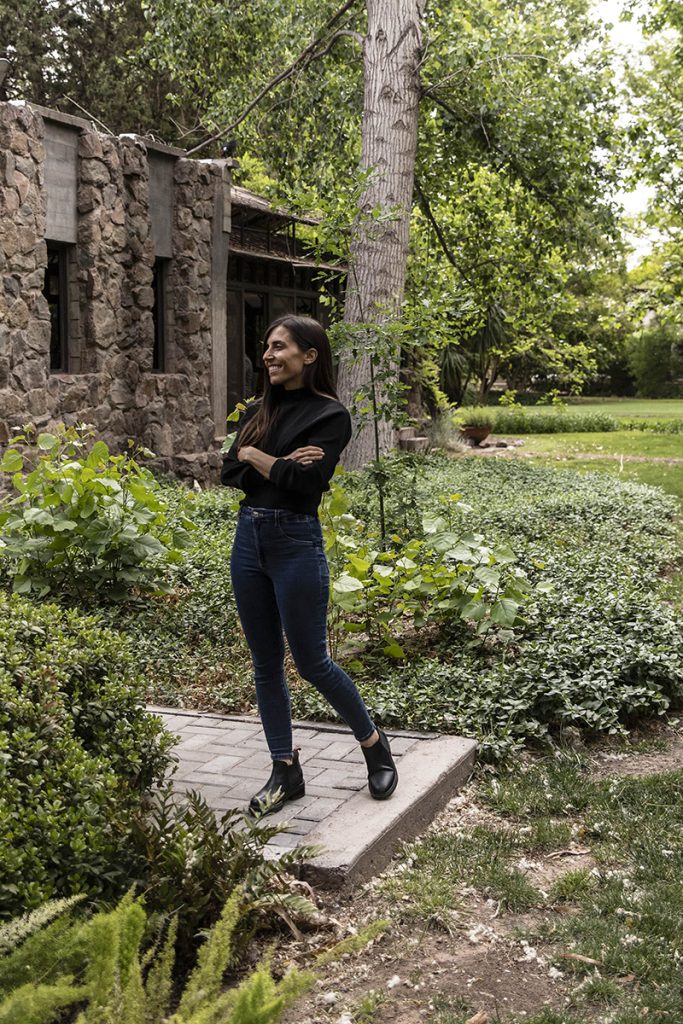
How do you think Mendoza is positioned as an oenotourism destination?
It has grown much more quickly than we were expecting. Ten years ago, when we went overseas, we had to explain where we were. That has changed a lot; two months ago, I went to a global oenotourism congress and everyone said how much they admired what we’ve achieved and what we’re doing now.
Julia Zuccardi, what are your plans for the future?
We’re working hard on a project at Santa Julia that we think will open in 2024. The essence of Santa Julia is sustainability, taking care of the environment and supporting our people.
The idea is to relaunch the winery’s image with a vineyard-based experience that showcases our work on sustainability in a real, tangible way.
We’re also going to have an art gallery, tasting and events spaces and a winery for natural wines. The concept will be supported by recent changes in Santa Julia’s communications strategy following the addition of organic and natural wines.
How do you bring together concepts such as sustainability, tourism and hospitality?
Sustainability means taking care of a place and its people. It all began with my grandmother Emma and that mantel has now been passed on to me. Many years ago, when social responsibility was an alien concept to many, Emma was already implementing these ideas, part of her profound vocation to help others. She grew our cultural centers and foundation; her major objective was, and this is still true of the family, to provide the tools with which to improve the quality of life of people in the community.
Today, at the Maipú and Santa Rosa vineyards we have centers that contain a school where winery workers can study for their high school diploma, a childcare facility, and a sewing workshop for local women to learn a trade, making products for us and their customers. It’s important for visitors to see all of this and then spread the word.
When it comes to caring for the environment, although I’m not involved in the work at the vineyard, we do contribute through the restaurant businesses. Our kitchens are always looking to promote the local products that make up our menus.
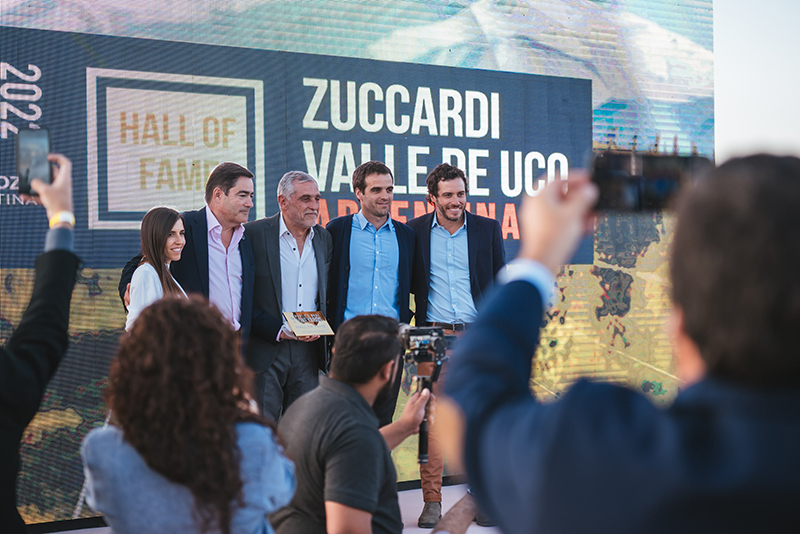
Do you think that Zuccardi sets an example for oenotourism in Argentina?
I think so, I think that we have one of the biggest tourism and hospitality structures and our team is continuously training for even greater improvement. A lot of people stay on to develop their careers with us while others, in time, go their own way, equipped with the tools for further growth.
Quality and innovation will always be major aspects of our work, we are a space of training and development.

